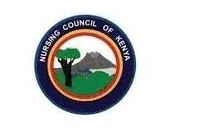Overview

- Act: Nurses Act, Cap 257 of the Laws of Kenya.
- Formed: 1985
- CEO: Dr. Lister Onsongo
- X (Twitter)
The Nursing Council of Kenya (NCK), established under the Nurses Act, Cap 257, began operations in 1985 to regulate the nursing and
midwifery professions. Its mandate includes overseeing the training, registration, and licensure of nurses, ensuring quality care standards, and enforcing ethical practices. NCK also accredits nursing schools, develops curricula, and conducts licensing exams. Additionally, it monitors compliance with healthcare regulations and advises the government on nursing and midwifery policy. Through these roles, the NCK safeguards public health and ensures high standards in nursing care across Kenya.
CEO: Dr. Lister Onsongo , PhD
Dr. Onsongo brings a robust background in healthcare leadership and academia, previously lecturing at Kenyatta University in
Community & Reproductive Health Nursing. Her areas of expertise include oncology, health education, and research in pain management and palliative care. In her role, she is tasked with guiding nursing and midwifery standards in Kenya, emphasizing
innovation, research, and regulatory oversight.
Board of Governors
Prof. Eunice Ndirangu – Mugo
Chairperson
Dr. Lister Onsongo
Registrar and CEO
Dr. Mutisya Albanus Kyalo
Member
Nyongesa Michael Simiyu
Member
Catherine Waigwe Mwaura
Member
Erick Kemboi Chebet
Member
Dr. Teckla J. Kemboi – Ngotie
Member
Pauline Ngala
Member
Dr. Judith Awinja Aluora
Ex-Officio Member
Dr. Gondi Joel Odhiambo
Independent Ex-Officio Member
Functions
- Regulation of Education: NCK sets and maintains the standards for nursing and midwifery education programs across the country, ensuring all training aligns with national healthcare standards.
- Accreditation of Training Institutions: NCK accredits and monitors nursing and midwifery training institutions to maintain high educational standards that prepare qualified healthcare professionals.
- Examinations and Licensing: It administers exams to nursing and midwifery graduates, issuing licenses to qualified practitioners who meet the required standards.
- Registration of Nurses and Midwives: NCK registers all practicing nurses and midwives in Kenya, ensuring only qualified individuals serve the public.
- Continuing Professional Development (CPD): NCK enforces CPD requirements to ensure practitioners continually update their skills and knowledge.
- Setting Ethical Standards: The Council establishes codes of conduct and ethical guidelines for nursing and midwifery professionals, fostering integrity within the profession.
- Disciplinary Authority: It investigates and disciplines practitioners who violate ethical or professional standards to maintain the credibility of the profession.
- Public Health Education: NCK engages in public health campaigns and advocacy to raise awareness on healthcare issues, promoting informed health choices.
- Policy and Standards Development: The Council collaborates with stakeholders to create policies and standards that guide the nursing and midwifery profession.
- Public Protection and Safety: Through these activities, NCK safeguards public health by ensuring a competent and ethical workforce in nursing and midwifery.
Important Links
Address & Contacts
- P.O Box 20056 – 00200, Nairobi
- NCK Plaza, Kabarnet Rd off Ngong Rd
- MQXR+8G Nairobi
- info@nckenya.go.ke
- +254 20 7854665/9 / +254721920567 / +254733924669